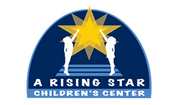How to Identify & Stop Your Toddler's Bullying Behavior

If you suspect your toddler is a bully or others bring up concerns, don’t dismiss the behavior. If your youngster is allowed to intimidate and put down peers at school or a child care center, they’re likely to continue the behavior as they get older. This can lead to problems in their personal and professional life. To improve your little one’s socialization skills, here’s a guide to the causes of bullying, signs to look for, and strategies to stop the behavior.
What Parents of Toddlers Should Know About Bullying
Why Toddlers Bully Others
Tendencies toward bullying behavior can start at home. A toddler can view negative family dynamics and mimic the aggression at school or child care. If a child is popular, they might pick on shy or unpopular kids to maintain the status quo. If a youngster was the target of bullying in the past, picking on others could be a defense mechanism.
How to Tell if Your Child Is a Bully
 The aggression a toddler exhibits could be verbal or physical. In an attempt to isolate a peer from the group, they might tease the classmate in front of others or exclude them from activities. Physical bullying can manifest as shoving, kicking, pinching, or biting.
The aggression a toddler exhibits could be verbal or physical. In an attempt to isolate a peer from the group, they might tease the classmate in front of others or exclude them from activities. Physical bullying can manifest as shoving, kicking, pinching, or biting.
What You Can Do About It
If teachers or other parents have noticed incidents of bullying, gather all the facts before getting defensive. Ask what prompted the altercation and what strategies the teacher recommends to stop the behavior. As children might act differently at home, volunteer at their school or child care center to see firsthand how your youngster interacts with their peers. Stress the importance of respecting others and how bullying will not be tolerated. You can provide incentives for improving their attitude by rewarding appropriate behavior with TV time, snacks, and other privileges.
If you’re looking for a child care center where youngsters learn how to get along with others, enroll them in the toddler program at A Rising Star Children's Center. Serving families in Croton-On-Hudson, NY, and the surrounding areas, these educators focus on children’s emotional and social growth as well as enhancing their fine and gross motor skills and cognitive abilities. Learn more about the early childhood learning opportunities online or call (914) 862-4283 to speak with a representative.
About the Business
(19 reviews)
Have a question? Ask the experts!
Send your question

